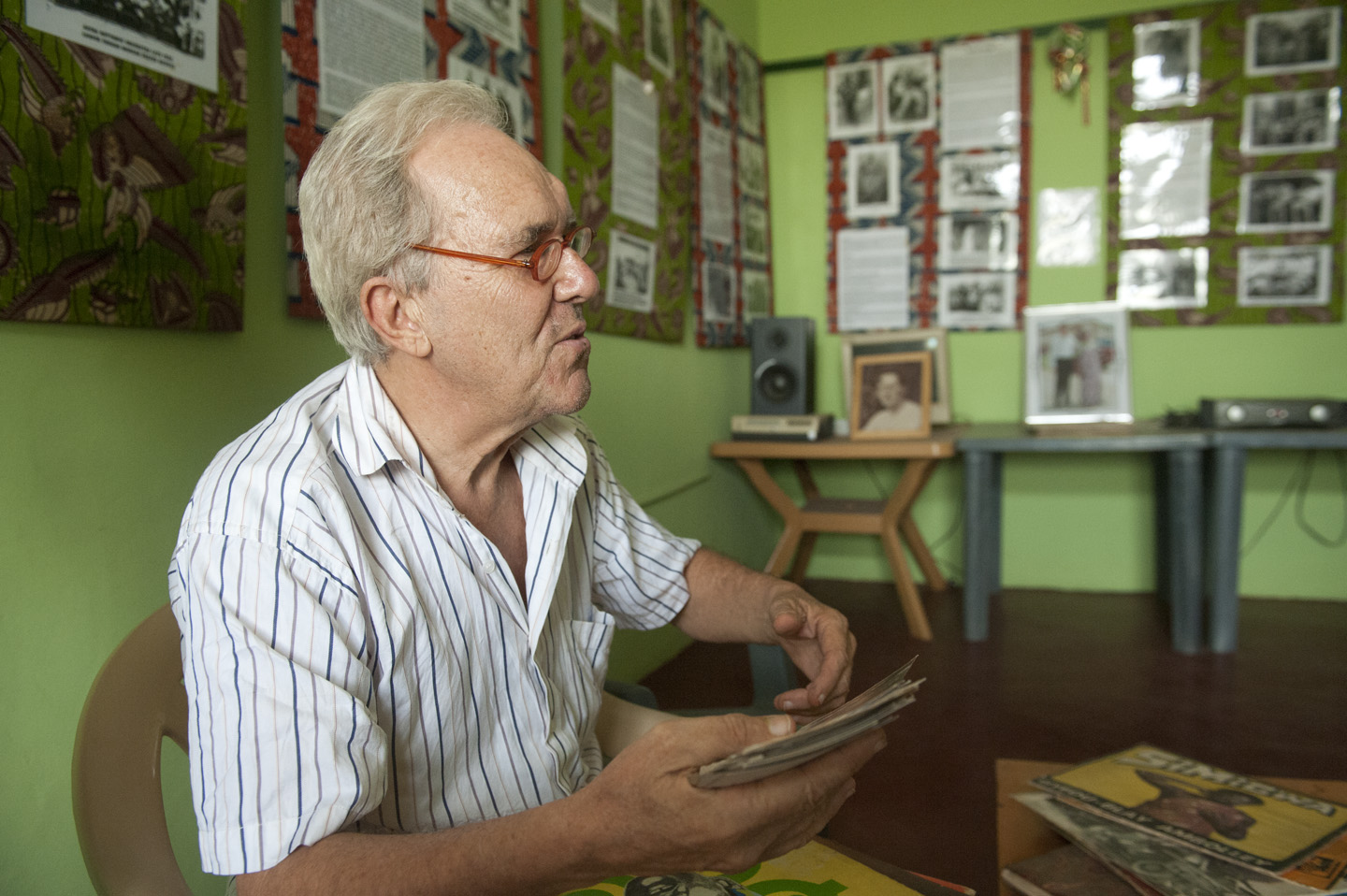John is by far one of the biggest proponents of Highlife music. He ran a full-time recording studio out of his father’s house in Achimota during the 1980’s, the most detrimental period for Ghanaian music due to the over imposing years of government-issued curfews. It was there that he recorded and/or worked alongside many of Ghana’s most esteemed highlife musicians.
Years later, he went on to establish the Bokoor African Music Archive Foundation (BAPMAF), which archives the history of highlife music. He also began teaching the history of Highlife at the University of Legon. As Head of the Music Department, he personally recruited Ebo Taylor as lecturer and instituted a focus on Ghanaian national music. Currently, he teaches undergrad and graduate courses on Ghanaian highlife and African popular music to a whole new generation of young Ghanaians who are rapidly becoming further removed from their nation’s rich musical history.
But that’s only the half of it.
His love affair with Ghanaian (and for that matter West African) music has spanned over 4 decades, and has seen him play with a number of bands ranging from concert-party style highlife groups (the Jaguar Jokers) to afro-rock ensembles (Faisal’s Napoleon house band - the Bunzu Soundz) to even collaborating with the great Fela Kuti in his many visits to the Shrine in Nigeria. But it was his own group, The Bokoor Band, that really highlighted his talents.
Formed in 1975, the Bokoor Band featured Collins doubled up as lead guitar and harmonica player along with his fire-eating ex-wife, Naa Doduwa, on vocals and a few other local musicians on percussion and rhythm. In 1979, part of the band moved temporarily to Europe to avoid the aftermath of the Jerry Rawlings coup of 1979. Upon their return, a second coup took place and imposed a permanent curfew in Ghana, essentially killing all nightlife (and his band’s prospects along with it). Left with nothing else, Collins converted a back room on his father’s property into a recording studio.
However, to many afrobeat fans, his greatest musical contribution came in the form of a four-track EP recorded in 1978 at Ghana Film studios and released on his own Bokoor label. According to Collins, the opening song, "Onukpa Swapo" may be the only afrobeat number to ever feature a harmonica. The second number uses the now familiar afro-Cuban influenced manicero rhythm, which can be found in various musical renditions throughout West Africa.
Collins credits his authentic guitar-playing technique to the years he spent learning under some of Ghana's greatest highlife musicians: Kwaa Mensah, EK Nyame, and Koo Nimo. All of whom reached back to the Seprewa-style of playing. He's a long way from the days when he first started with the Jaguar Jokers, who paraded him as a token novelty in order to draw a bigger crowd.
You can hear (and more importantly BUY) John Collins' music on various compilations that feature the work of his band and others who’ve recorded in his now legendary studio.

